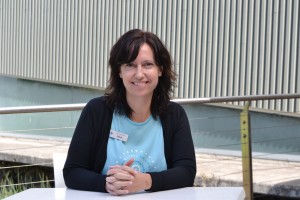 It was 45 years several weeks ago that Three Dog Night released a No.1 Billboard chart-topper written by Harry Nilsson that started with the line: One is the loneliest number… It is possibly the most trivial thing you’ll ever read in a lifetime; don’t expect it at the local quiz night.
It was 45 years several weeks ago that Three Dog Night released a No.1 Billboard chart-topper written by Harry Nilsson that started with the line: One is the loneliest number… It is possibly the most trivial thing you’ll ever read in a lifetime; don’t expect it at the local quiz night.
However, it aptly sums up the lives of so many people along our southern coastline. For whatever reason, predominantly the passing of their partner, we have elderly home alone and feeling isolated from our community. Many are unable to drive, rarely venturing from their home for anyone to realise their plight.
If you happen to hear your neighbour playing that old One track, perhaps by Johnny Farnham, who made it more popular in Australia also in 1969, tell him/her about a wonderful organisation called the Caring Neighbourhood Program, which deals with this very issue – providing friendship; that vital realisation that there can be two in their life.
Helen Deguet (pictured above), who is program coordinator of this initiative of the Victor Harbor and Alexandrina councils, with funding support by the Australian Government’s Home and Community Care Scheme, said the greatest challenge was finding more volunteers and reaching to those in need of communication.
And when these doors are opened, gone is this immense feeling of depression, and entering is an incredible feeling of life, not only with brilliant one-on-one friendship meetings, but group sessions in the form of being picked up for five lunches a month, a movie day at Carrickalinga House, an exercise program, monthly bus trip, a keen art group, and a good old fashioned knitting and sewing class. Hello, but has anyone out there got time to feel down about loneliness?
We don’t live in a perfect world, and so much more can be done to help those who need support, but this Caring Neighbourhood Program goes a long way to revitalising lives; there is a wonderful reason to get out of bed every morning, and made easier when realising others share the same plight.
“All through our life we think, ‘I’ve got to get up and get out there and meet people’, and you are responsible, but in reality it is not easy for some, especially when their mobility is not as good as it once was,” Helen said. “It is why this program is so important; it helps and encourages people to take a positive and perhaps bold step.”
The Caring Neighbourhood Program was established 15 years ago, and Helen has been in the job since last July. She paid tribute to Glenys Brown, a remarkable community worker and the previous coordinator, who over nine years established a great network of volunteers with their sole mission being the most important person to someone who was lonely – a friend.
There are currently 40 volunteers helping 120 clients, whether providing transport, or just simply doing what friends do. Helen explained that, being a friendship-based service the volunteers were not there for essential needs.
“We might have a volunteer who picks up a client and takes them shopping, and we need to make sure that it is friendship-based rather than shopping-based,” Helen said. “Because we are volunteers, if that person needs that shopping to survive then we will try to link them into a service to get that shopping done.
“For us, it’s about friendship; having a coffee and browsing the shops. We link a volunteer with a person who shares common interests so they will form a friendship; you cannot replace that. In some cases it develops beyond just a volunteer thing; it becomes a strong bond.
“The group meetings have proved invaluable because people see others in a different light, and the best comes out of them. Suddenly they have gone from having no friends or even a link to the community to perhaps one friend and then a nice group, all sharing a positive outcome.
“With primary health, I think we have all realised just how important it is to keep our social well-being going as much as anything else.
“We also find carers, who perhaps have looked after a partner or parent, have put their social needs to one side and lost a lot of friends because of that. They drop out of clubs and community programs to solely focus on this person which becomes all consuming. When that person dies or goes into residential care, the carer finds all this time on their hands and has lost all of their contacts. That can be really hard.
